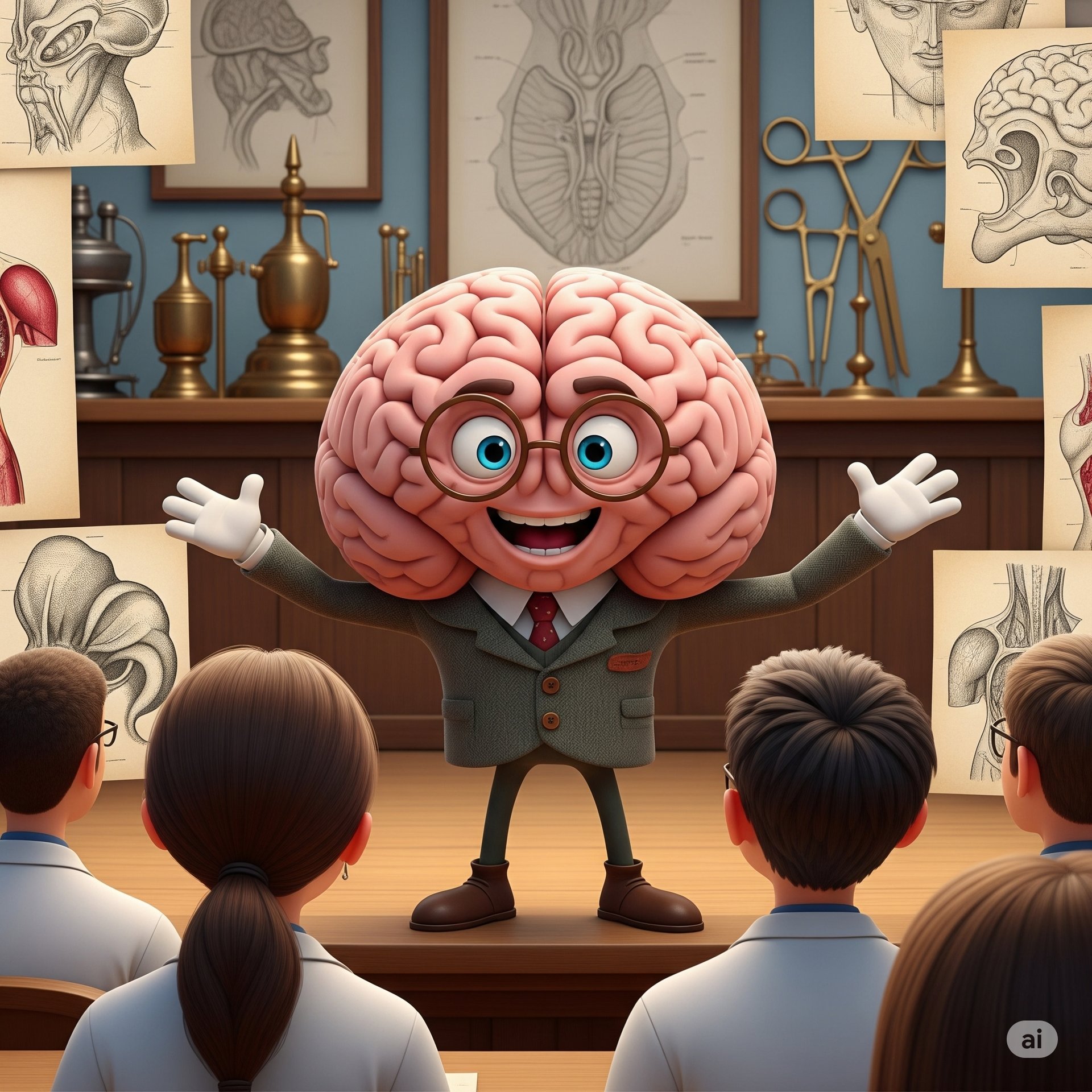THEMEDPRACTICALEXAM.COM

History Taking Format for Vertigo
1. Patient Details
Name, Age, Sex, Occupation, Address
2. Presenting Complaint
Sensation of spinning or movement (vertigo)
Duration and progression
3. History of Presenting Illness
Clarification of Symptom:
Ask the patient to describe the sensation in their own words (spinning, swaying, lightheadedness, imbalance, presyncope, etc.)
Onset:
Sudden or gradual?
Exact time and circumstances (e.g., on waking, with head movement, after trauma)
Duration:
How long does each episode last? (seconds, minutes, hours, days)
Frequency:
How often do episodes occur?
Any periods of complete normalcy between episodes?
Triggers:
Are episodes brought on by changes in position, head movements, loud noises, coughing, exertion, or visual stimuli?
Any activities that worsen or relieve symptoms?
Associated Symptoms:
Hearing loss, tinnitus, ear fullness or pain
Nausea, vomiting
Headache, visual changes
Diplopia, dysarthria, dysphagia
Weakness, numbness, or other neurological symptoms
Palpitations, chest pain (to rule out cardiac causes)
Functional Impact:
Falls or injuries
Difficulty walking or with daily activities
Previous Episodes:
Any similar episodes in the past?
Any treatment received and response?
4. Past Medical History
Previous ear disease (infections, surgery, Menière’s disease)
Migraine, stroke, cardiovascular disease, diabetes, hypertension
Recent infections, trauma, or surgeries
5. Drug History
Current and recent medications (especially ototoxic drugs, antihypertensives, sedatives, antiepileptics, antibiotics)24
Any recent changes or new medications
Side effects experienced
6. Family History
History of vertigo, migraine, hearing loss, cardiovascular or neurological disease in family members2
7. Personal and Social History
Alcohol, tobacco, or recreational drug use
Occupational exposures (noise, chemicals)
Recent travel (risk of infection)
8. Systemic Enquiry
Fever, weight loss, night sweats (infection, malignancy)
Visual, hearing, speech, or swallowing disturbances
Gait or balance issues
Special Notes:
Always clarify the difference between vertigo (spinning sensation), presyncope (feeling faint), disequilibrium (imbalance), and non-specific dizziness, as these have different causes and implications458.
Use structured paradigms like TiTrATE (Timing, Triggers, And Targeted Examination) to categorize the vertigo syndrome (acute, episodic, chronic)5.
Ask about psychological symptoms or functional impact, as chronic vertigo can be associated with anxiety or depression5.

Case History
Personal Details:
Mrs. Anita Verma, 52-year-old female, homemaker
Presenting Complaint:
Recurrent episodes of spinning sensation for 2 weeks
History of Presenting Illness:
Mrs. Verma reports that for the past 2 weeks, she has experienced several episodes of a spinning sensation, each lasting about 30 seconds to 1 minute. She describes the feeling as if the room is spinning around her. The episodes are triggered when she turns her head to the right, especially while getting out of bed or looking up at a shelf. The vertigo is sometimes accompanied by mild nausea but no vomiting.
She denies any hearing loss, tinnitus, ear fullness, or ear pain. There is no recent history of upper respiratory infection, fever, headache, visual changes, double vision, weakness, numbness, speech or swallowing difficulties, or loss of consciousness. She has not experienced any falls, but she feels unsteady during the episodes.
She has had no similar episodes in the past and no recent head trauma. There is no history of migraine, diabetes, or hypertension. No recent medication changes.
Past Medical History:
No known chronic illnesses
No previous ear disease or neurological disorders
Drug History:
Not on any regular medications
No recent use of ototoxic drugs
Family History:
No family history of vertigo, migraine, or neurological disease
Personal and Social History:
Non-smoker, does not consume alcohol
No occupational exposures
Systemic Enquiry:
No fever, weight loss, night sweats, or other systemic symptoms
No visual, speech, or swallowing disturbances
Case Summary
A 52-year-old woman presents with brief, recurrent episodes of spinning vertigo, triggered by head movements, lasting less than a minute, with mild nausea and no auditory or neurological symptoms. No history of trauma, infection, or chronic illness.
Differential Diagnosis
Benign Paroxysmal Positional Vertigo (BPPV)
Most likely, given the brief, positional, recurrent episodes of vertigo without auditory symptoms.
Vestibular Neuritis
Less likely due to absence of prolonged vertigo, hearing loss, or preceding infection.
Menière’s Disease
Less likely as there is no hearing loss, tinnitus, or ear fullness.
Migrainous Vertigo (Vestibular Migraine)
Possible but less likely without history of migraine or associated headache.
Central Causes (e.g., cerebellar stroke, multiple sclerosis)
Unlikely due to absence of neurological symptoms and short duration of episodes, but should be considered if symptoms change or persist.
Orthostatic Hypotension or Presyncope
Unlikely, as the sensation is true vertigo and is clearly positional.
Case History 2
Personal Details:
Mr. Rajesh Singh, 66-year-old male, retired engineer
Presenting Complaint:
Sudden onset of severe vertigo for 6 hours
History of Presenting Illness:
Mr. Singh was apparently well until 6 hours ago, when he suddenly experienced a severe spinning sensation (vertigo) while sitting at home. The vertigo was intense, constant, and made it difficult for him to sit or stand without support. He also felt unsteady and nauseated, and vomited once shortly after the onset.
He noticed double vision (diplopia) and mild slurring of speech (dysarthria) around the same time. He denies any hearing loss, tinnitus, ear fullness, or ear pain. There was no loss of consciousness, limb weakness, numbness, facial drooping, or difficulty swallowing. He has not had a similar episode in the past.
There is no history of headache, fever, recent trauma, or upper respiratory infection.
Past Medical History:
Hypertension for 12 years, on irregular medication
Hyperlipidemia
No diabetes, atrial fibrillation, or previous stroke/TIA
Drug History:
Irregular use of antihypertensives and statins
No anticoagulants or recent medication changes
Family History:
Father had a stroke at age 70
No hereditary neurological disorders
Personal and Social History:
Non-smoker, does not consume alcohol
Retired, lives with spouse
Systemic Enquiry:
No fever, weight loss, night sweats
No visual loss, hearing loss, or limb weakness
Case Summary
A 66-year-old hypertensive, dyslipidemic male presents with sudden-onset severe vertigo, unsteadiness, nausea, vomiting, diplopia, and dysarthria, without auditory symptoms or focal limb deficits. Vascular risk factors are present.
Differential Diagnosis
Posterior Circulation Ischemic Stroke (most likely)
Sudden, severe vertigo with brainstem/cerebellar symptoms (diplopia, dysarthria) in a patient with vascular risk factors is classic.
Acute Vestibular Neuritis
Presents with vertigo and unsteadiness, but typically lacks diplopia and dysarthria.
Cerebellar Hemorrhage
May present similarly but often with headache or altered consciousness; requires urgent imaging to rule out.
Menière’s Disease
Less likely due to absence of auditory symptoms and acute neurological signs.
Vestibular Migraine
Possible, but less likely without a history of migraine or younger age.

1. What is vertigo?
Vertigo is a symptom characterized by an abnormal sensation of movement, usually rotational, where the patient or their surroundings feel as if they are spinning248.
2. Is vertigo a disease or a symptom?
Vertigo is a symptom, not a disease. It indicates dysfunction of the vestibular system or its central connections245.
3. What are the main types of vertigo?
Peripheral vertigo: Due to disorders of the inner ear or vestibular nerve (e.g., BPPV, Ménière’s disease, vestibular neuritis)15.
Central vertigo: Due to disorders of the brainstem or cerebellum (e.g., stroke, multiple sclerosis, tumors)15.
4. What are the common causes of peripheral vertigo?
Benign paroxysmal positional vertigo (BPPV)
Ménière’s disease
Vestibular neuritis/labyrinthitis
5. What are the common causes of central vertigo?
6. What are the typical symptoms associated with vertigo?
Spinning sensation
Nausea and vomiting
Imbalance or unsteadiness
Nystagmus
Sometimes, hearing loss or tinnitus (in peripheral causes)25.
7. How do you differentiate between peripheral and central vertigo clinically?
Peripheral vertigo often has severe spinning, is triggered by head movement, may have hearing loss/tinnitus, and nystagmus that disappears with gaze fixation. Central vertigo often has milder dizziness, is less positional, may have other neurological deficits, and nystagmus that can be vertical or does not disappear with fixation1.
8. What is BPPV and how is it diagnosed?
BPPV (Benign Paroxysmal Positional Vertigo) is caused by displaced otoliths in the semicircular canals. It is diagnosed by the Dix-Hallpike maneuver, which elicits vertigo and nystagmus with specific head movements15.
9. What is the Epley maneuver?
The Epley maneuver is a therapeutic head movement sequence used to reposition displaced otoliths in BPPV, relieving symptoms in most patients1.
10. What is vestibular neuritis?
Vestibular neuritis is inflammation of the vestibular nerve, often following a viral infection, causing acute onset vertigo without hearing loss or tinnitus12.
11. What is Ménière’s disease?
Ménière’s disease is a disorder of the inner ear characterized by episodic vertigo, fluctuating hearing loss, tinnitus, and a feeling of ear fullness15.
12. What investigations are done for vertigo?
Hearing assessment (audiometry)
Imaging (CT/MRI) if central cause suspected or neurological signs present15.
13. What is the role of nystagmus in vertigo?
Nystagmus is an involuntary eye movement often seen in vertigo. Its direction and characteristics help distinguish between peripheral and central causes1.
14. What are the main triggers for vertigo attacks?
Head movements
Changes in position
Stress, fatigue, lack of sleep
Loud noises (in some cases)2.
15. Can infections cause vertigo?
Yes, infections like labyrinthitis or vestibular neuritis can cause vertigo by affecting the inner ear or vestibular nerve25.
16. How is vertigo treated?
Treatment depends on the cause and may include medications (antiemetics, antihistamines, benzodiazepines), vestibular rehabilitation, Epley maneuver for BPPV, and in some cases, surgery125.
17. When is imaging indicated in vertigo?
Imaging (CT/MRI) is indicated if there are neurological deficits, risk factors for stroke, or if the clinical picture is not consistent with a peripheral cause15.
18. What is the prognosis of vertigo?
Most cases of peripheral vertigo are benign and resolve with treatment or spontaneously. Central vertigo may have a more serious underlying cause and requires urgent evaluation12.
19. Can allergies or ear infections cause vertigo?
Yes, allergies (via immune-mediated inner ear effects) and ear infections (labyrinthitis) can cause vertigo2.
20. What lifestyle modifications can help prevent vertigo attacks?
Avoiding triggers (sudden head movements, stress, lack of sleep)
Staying hydrated
Regular physical activity
Vestibular rehabilitation exercises2.